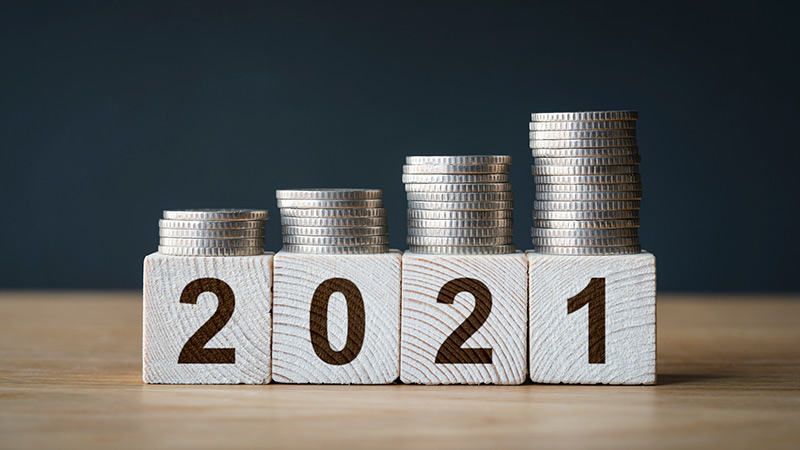
This content is for information and inspiration purposes only. It should not be taken as financial or investment advice. To receive personalised, regulated financial advice please consult us here at Elmfield Financial Planning in Padiham, Burnley, Lancashire.
From a young age we are taught that “debt is bad”. As such, we should seek to stay away from it as much as possible – or clear it quickly. Although this is a good principle for personal loans and credit card debts, it often becomes confusing when people look to get onto the property ladder. For most people, this will involve taking out a mortgage (a type of debt), since few can afford to buy a home outright.
In light of this, should homeowners make it a priority to repay their mortgage as soon as they can? Whilst we understand the psychological appeal of owning your home outright, below we outline how – from a financial perspective – it typically makes sense to find a good mortgage deal and pursue a sound investment strategy alongside it (e.g. saving for retirement).
We hope you find this content useful. If you’d like to speak to an independent financial adviser then you can reach us via:
T: 01282 772938
Ranking financial priorities
For some people, paying off their mortgage quickly can feel like the overriding financial priority. After all, it likely represents your largest monthly expense – possibly £100s if not £1000s. Think of how much disposable income this would free up each month if it were to disappear! Perhaps you could then afford to take a reduction in hours, or change careers involving a lower salary.
However, for almost all households, other financial priorities must be considered before this one. In particular, building up an emergency fund containing 3-6 months’ worth of living expenses is important to create a temporary buffer against falling into debt should you lose your job, or an unexpected cost comes up (e.g. a family emergency). Clearing high-interest debts is also crucial to help improve your credit score and free up income which could go towards more meaningful areas (e.g. investing). Unpaid credit card debt in 2021, for instance, can represent an annual percentage rate (APRs) over 20%. That’s £200 interest on a £1,000 debt. Finally, your financial protection profile is also important – to ensure financial stability for your household in the event of disaster. Life insurance is often key here, giving your surviving family members a crucial lump sum should you die prematurely.
Repay mortgage vs. investing
What if your financial priorities are in order, however? At this point, many people may ask if repaying their mortgage should take priority over saving for retirement. Here, the principle is more straightforward. In general, if the “interest” you reasonably expect to generate from your investments (after tax) over the next 20-30 years (i.e. the duration of your mortgage) is higher than the interest rate you expect to pay on your mortgage, then investing usually makes more sense than repaying your mortgage. This is because the rate of interest you’ll be making from your investments will be higher than the interest you’d save by paying off your loan.
This is why it typically makes sense to prioritise paying off credit card debt before investing. If you owe £1,000 on a credit card which has 18% APR, for instance, then you are unlikely to beat this with a portfolio averaging 6-8% returns per year. Mortgages, however, involve much lower interest rates since they are a type of secured loan which is affected by the Bank of England’s (BoE) base rate. In 2021, the latter is currently set at an historic low of 0.10% and it is possible to now even find mortgages with an interest rate under 1% – although, more commonly, buyers will be looking at rates between 2-4%. Since these rates of interest are lower than the returns an investor can realistically expect to achieve with a more “aggressive” portfolio, it is likely that they will financially benefit more from investing rather than paying off their mortgage early.
This is not to say, however, that it never makes sense for someone to focus on the latter. Maybe you are a very risk-averse person craving financial security and the peace of mind that comes from owning your home outright. From a financial perspective, this can also make sense if you are approaching the “drawdown stage” of your life – i.e. when people move their investments to lower-risk, lower-return assets (e.g. bonds) and start taking a pension income. Here, the returns on your portfolio may be similar to the interest rate on your mortgage, so why not just repay the outstanding debt (e.g. using some of your 25% tax-free pension lump sum)? Here, whichever course you are inclined to, it is important to discuss your options with an experienced financial planner who can help you understand the breadth of information involved. Given the high costs involved and the impact your choices can have on your future lifestyle, taking time to talk things through carefully with a professional brings peace of mind and pays for itself in the long term.
Invitation
If you are interested in starting a conversation about your own financial plan or investments, then we’d love to hear from you. Please contact us to arrange a free, no-commitment consultation with a member of our team here at Elmfield Financial Planning in Padiham, Burnley, Lancashire.
Reach us via:
T: 01282 772938

